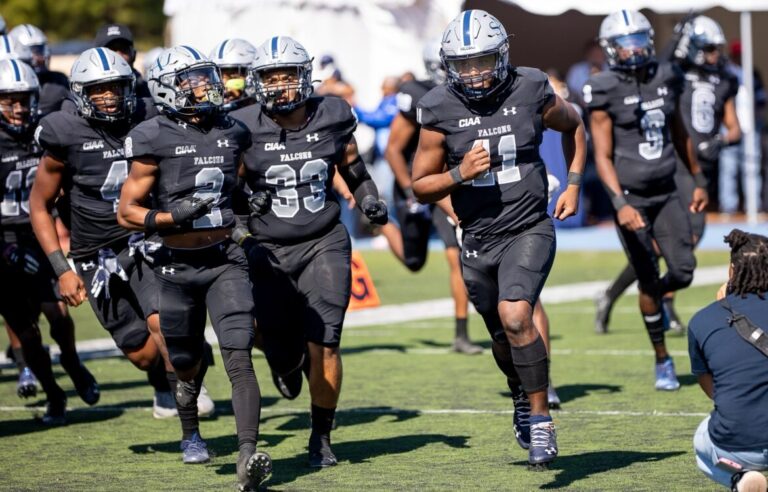As football enthusiasts, we often hear terms like varsity and junior varsity (JV) thrown around in the sports world. But what exactly is JV in football? JV refers to the secondary level team in a football program, typically comprised of younger or less experienced players than the varsity team. JV serves as a crucial developmental platform for players to hone their skills, gain playing time, and eventually progress to the varsity level.
In this blog, we delve deeper into the significance of JV in football, exploring its role in player development, team dynamics, and the overall success of a football program. Join us as we unravel the mystery behind JV and its impact on the sport we all love.
Introduction to JV in Football
Exploring the depths of what JV in football entails opens up a realm of opportunities for emerging talents to showcase their skills on the field within a competitive environment. Junior varsity (JV) teams in football are characterized by players who are typically younger or less experienced than those on the varsity squad. This serves as a developmental platform where athletes can hone their abilities before progressing to higher levels of competition.
The Role of JV Teams
Junior varsity teams play a crucial role in nurturing talent by providing invaluable playing time and experience to aspiring footballers. These teams act as a stepping stone for individuals aiming to secure a spot in the varsity roster in the future. The emphasis is on skill development and gaining a comprehensive understanding of the game.
Benefits of JV Participation
Engaging in JV football instills a sense of discipline, teamwork, and sportsmanship among players. It fosters camaraderie and encourages healthy competition, promoting holistic growth both on and off the field. Additionally, it offers a platform for coaches to identify promising talent and mold them into future stars of the sport.
- Enhances skill development and tactical awareness
- Promotes physical fitness and mental resilience
- Builds a foundation for future success in competitive sports

History and Evolution of JV Teams
Junior Varsity (JV) teams in football have a rich history dating back to the early beginnings of the sport. Originally intended to provide younger or less experienced players with opportunities to develop their skills, JV teams have evolved significantly over the years.
Early Beginnings
In the early days, JV teams were often considered as feeder teams for the varsity squad. They served as a training ground for aspiring athletes to hone their abilities before moving up to the next level.
These teams were crucial in nurturing talent and building a strong foundation for the future of the sport.
Modern Role of JV Teams
Today, JV teams play a pivotal role in fostering inclusivity and providing opportunities for players of varying skill levels to participate in the sport. They serve as a bridge between recreational play and the competitive atmosphere of varsity competition.
- Offering valuable playing time to developing athletes
- Building teamwork and sportsmanship
- Preparing players for the demands of varsity competition
Role of JV Teams in High School and College Football
Junior varsity (JV) teams play a crucial role in the development and progression of football players in high school and college. These teams are typically composed of younger or less experienced athletes who are looking to gain valuable game time experience and improve their skills on the field.
Development of Players
Participating in JV teams allows players to refine their techniques and strategies in a competitive environment. It provides a stepping stone for athletes to transition to varsity level play.
Building Team Cohesion
JV teams help in fostering team spirit and camaraderie among players. Teammates learn to work together towards a common goal. This cohesion often carries over to the varsity level, enhancing overall team performances.
- Encourages teamwork
- Promotes sportsmanship
- Strengthens bonds among players
Benefits and Drawbacks of Playing on a JV Team
Joining a Junior Varsity (JV) football team comes with its own set of advantages and drawbacks. Let’s explore the benefits and drawbacks of playing on a JV team.
Benefits
Playing on a JV team offers younger or less experienced players the opportunity to develop their skills in a competitive environment. JV teams also serve as a stepping stone to varsity-level play, allowing players to gain valuable experience and improve their game.
Additionally, being part of a JV team provides players with more playing time compared to varsity teams, enabling them to showcase their abilities and potentially move up to the next level.
Drawbacks
One of the drawbacks of playing on a JV team is that the competition level may not be as high as that of varsity teams, which can limit the overall development of a player’s skills.
Furthermore, JV teams may not receive the same level of attention or recognition as varsity teams, which could affect the morale and motivation of the players.
Key Differences Between JV and Varsity Football
When exploring what is JV in football, understanding the key differences between JV and Varsity football is essential. JV, short for junior varsity, consists of younger or less experienced players compared to Varsity football. JV teams often serve as a developmental platform for players aiming to advance to the Varsity level in the future.
Player Skill and Experience
Varsity teams typically consist of more skilled and experienced players who have honed their abilities over time. On the other hand, JV players are usually younger and still developing their skills, aiming to make progress and showcase their potential.
Varsity players are often selected based on their performance, experience, and overall expertise, serving as the pinnacle of high school football competition.
Game Time and Exposure
Varsity games receive more attention, higher attendance, and greater media coverage compared to JV games. Varsity players compete in high-stakes matches with significant visibility, while JV games offer players valuable playing time crucial for their development.
- Varsity players may have more pressure to perform consistently due to the higher expectations and competition intensity.
- JV players, in contrast, use their games to learn and improve their skills in a less intense environment, focusing on growth rather than immediate results.
Importance of JV Games and Development of Players
Participating in JV games plays a crucial role in the development of football players. JV teams offer younger or less experienced athletes the opportunity to gain valuable game experience before advancing to varsity levels. This serves as a stepping stone for players to enhance their skills, understand game strategies, and build teamwork.
Key Benefits of JV Games
Playing in JV games allows players to grow in skill and confidence. The competitive environment helps them to learn to perform under pressure and deal with various game scenarios. It also provides a platform for coaches to identify player strengths and areas for improvement.
Development of Players
Through regular participation in JV games, football players get the chance to refine their techniques and understand the dynamics of the game. They learn to adapt to different play styles and gain insight into opponent strategies. Such experiences contribute significantly to their overall growth and preparedness for higher levels of competition.
Moreover, JV games facilitate player cohesion and camaraderie among teammates through shared experiences and hard-fought matches.
Frequently Asked Questions
-
- What does JV stand for in football?
- JV stands for Junior Varsity in football.
-
- What is the difference between JV and varsity in football?
- Varsity teams typically consist of the top players in a school’s program and compete at a higher level than JV teams. JV teams serve as a developmental level for players to gain experience and skills before moving up to varsity.
-
- Who plays on the JV football team?
- The JV football team is often made up of younger or less experienced players who are looking to improve their skills and eventually move up to the varsity level.
-
- Do JV football games differ from varsity games?
- Yes, JV football games may have slightly different rules, durations, or regulations compared to varsity games. They are typically considered a preparatory level for players to grow and advance in the sport.
-
- How important is JV football in a player’s development?
- JV football plays a crucial role in a player’s development as it provides valuable game experience, allows players to refine their skills, and prepares them for the competitive varsity level. It is an essential stepping stone for young athletes in their football journey.
Unraveling the Mystery: What is JV in Football
After diving deep into the realm of junior varsity football, it is evident that JV teams are vital for player development and team building. Understanding what JV in football stands for and its significance provides clarity for both players and fans. JV serves as a stepping stone for aspiring athletes to hone their skills and transition to varsity teams. It fosters a competitive environment, instilling discipline and teamwork among young players. By shedding light on the role of JV in football, we appreciate the importance of nurturing talent at grassroots levels. In summary, JV in football acts as a crucial platform for nurturing future football stars and fostering a passion for the game.





